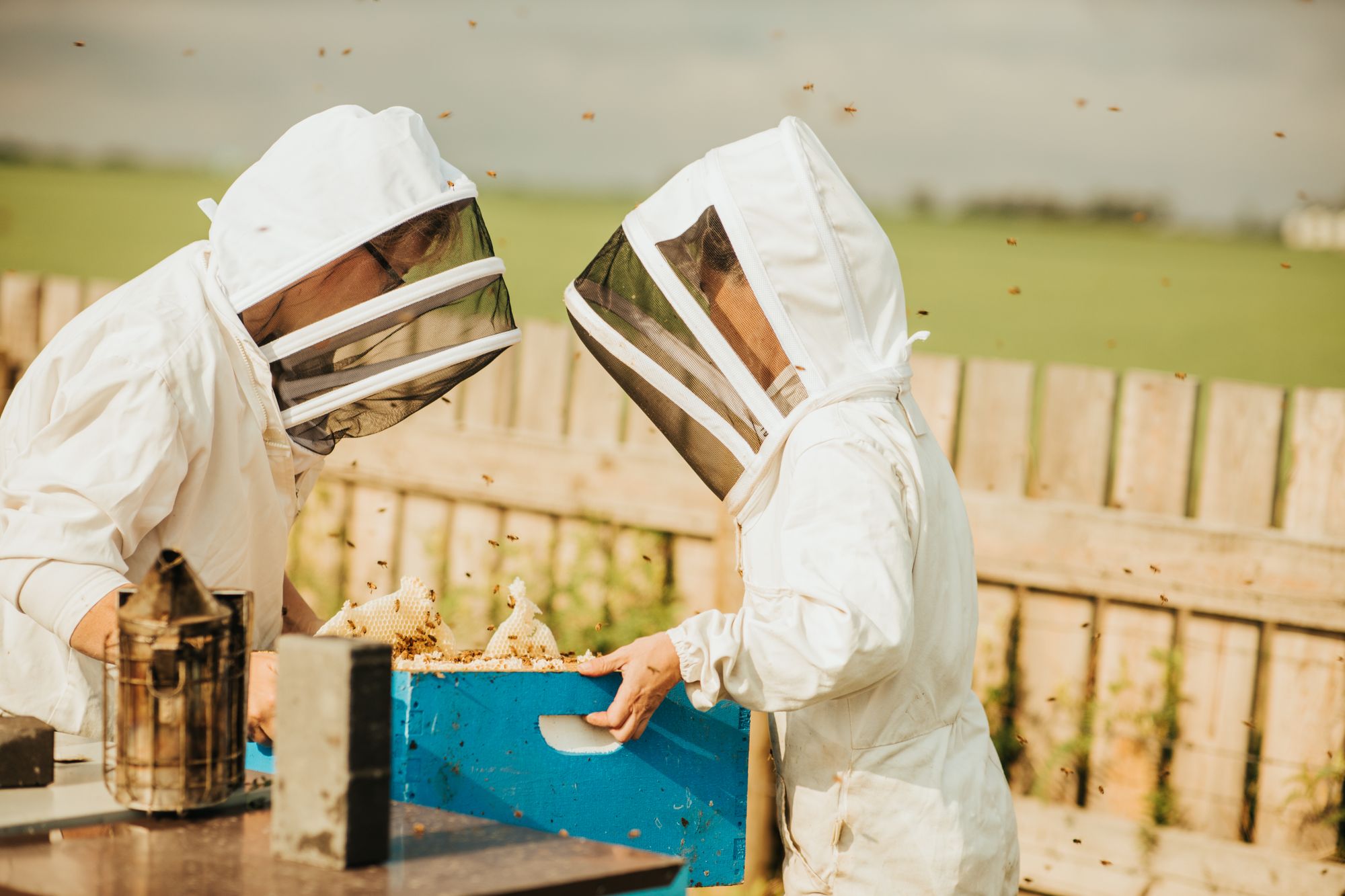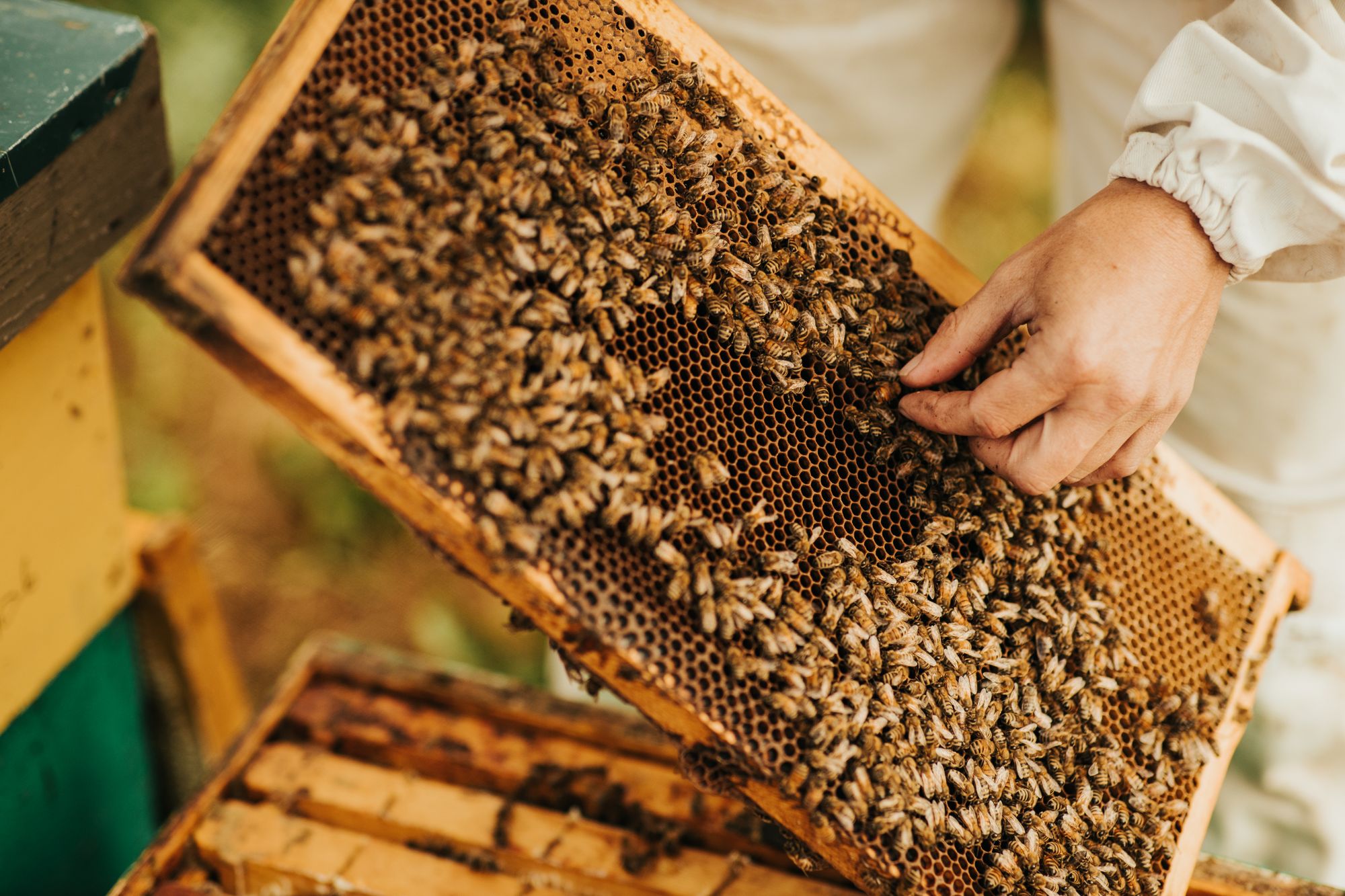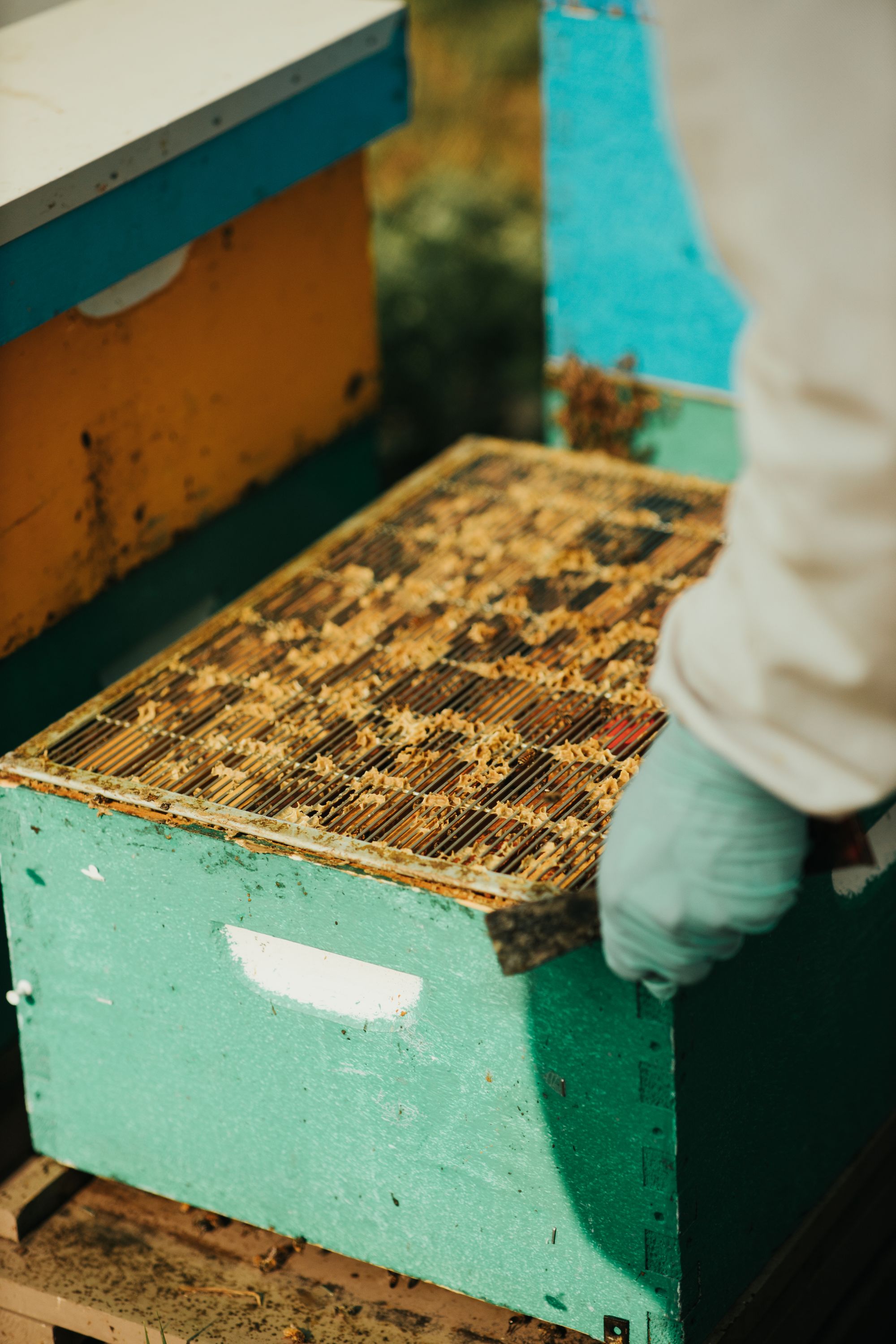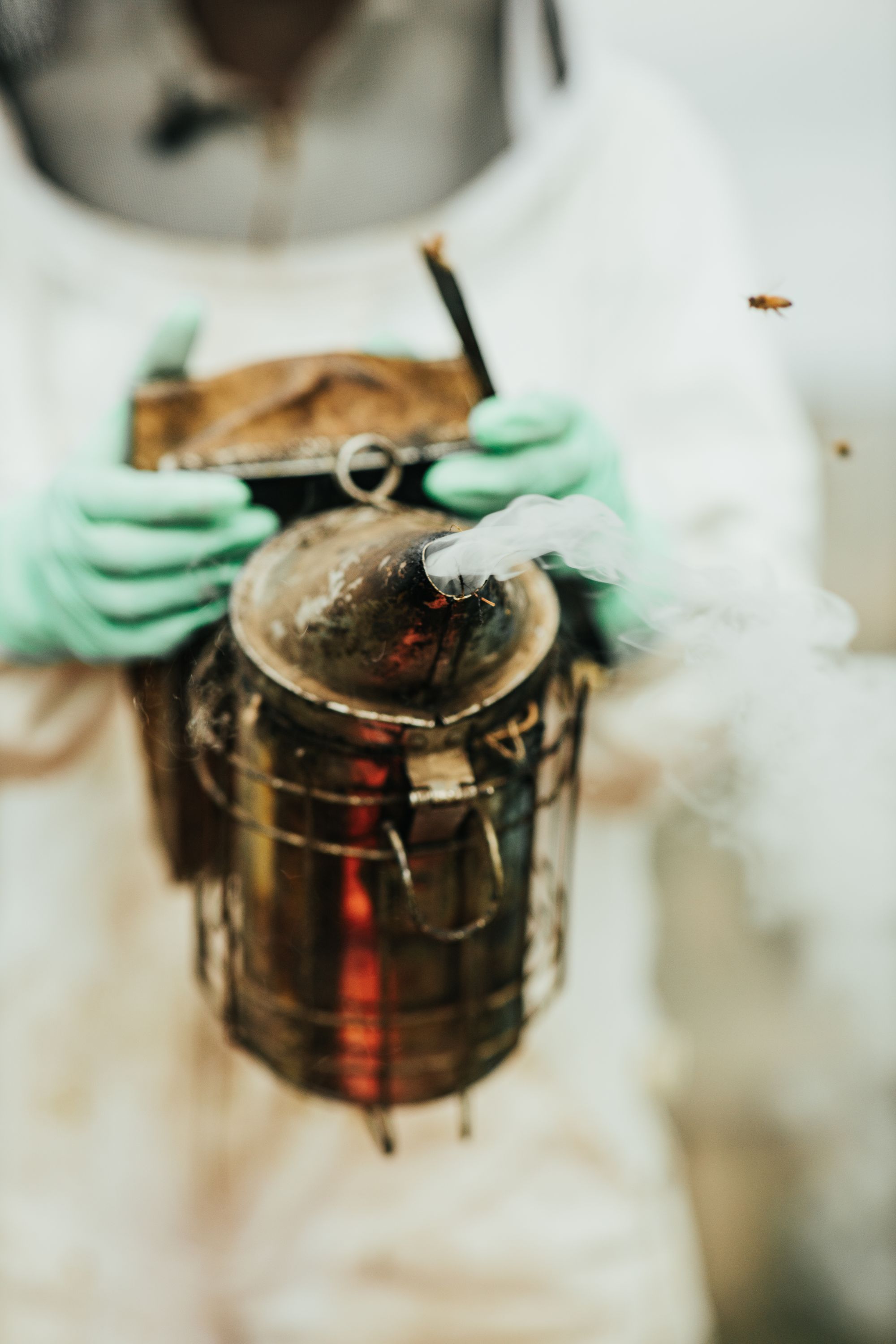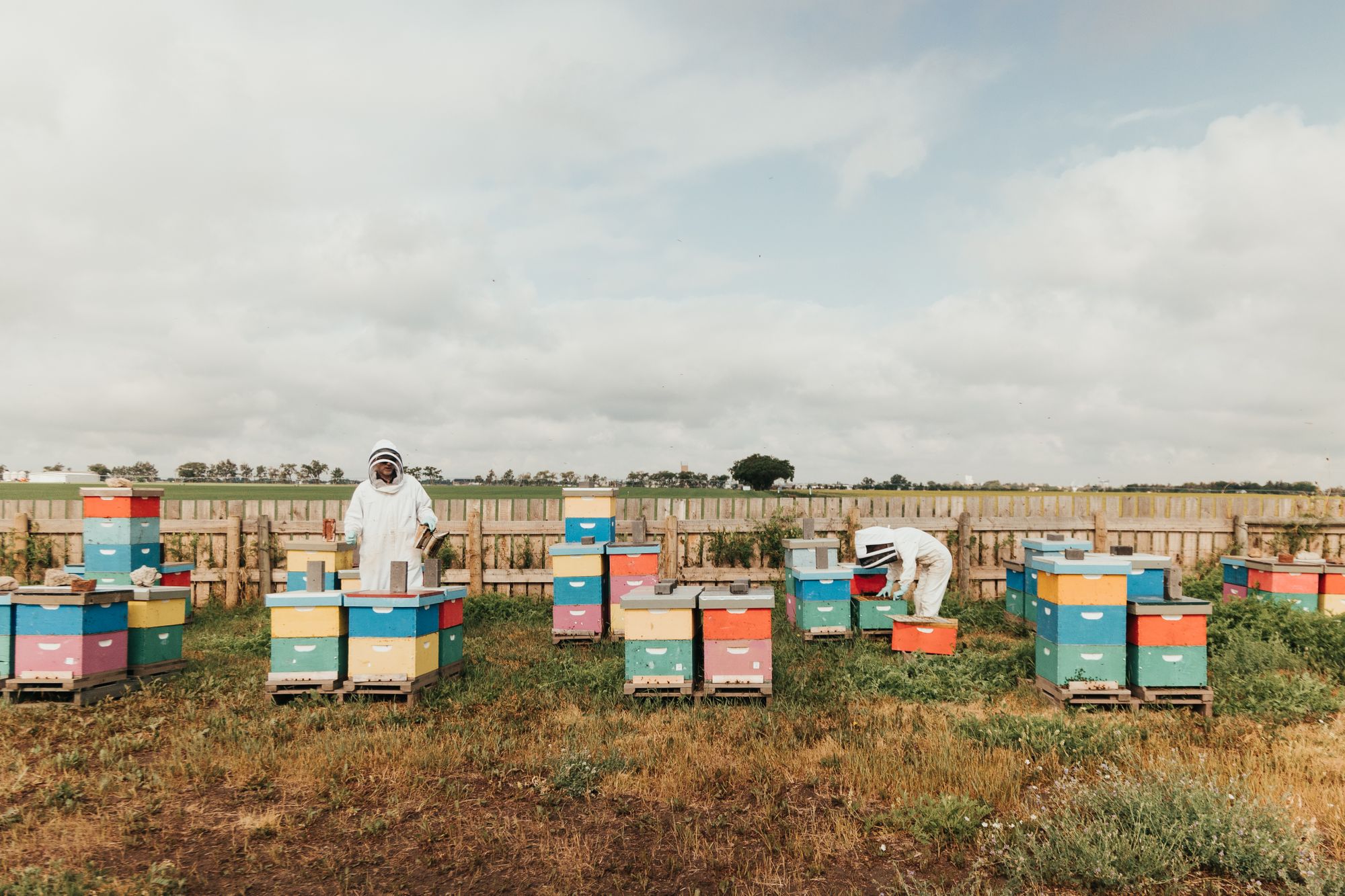The entire shape of the ecosystem is dependent on the interactions between pollinators and plants that allows plants to set seed and then exist across our landscape
Dr. Shelley Hoover is a dedicated beekeeper of over 20 years, and her passion is helping to keep our ecosystem in balance.
Hoover, a biological sciences and agriculture research associate at the University of Lethbridge, focuses her research program on honey bee health and management, queen bee production and breeding, nutrition, and canola pollination. She is also the current president of the Canadian Association of Professional Apiculturists, and past president of the Entomological Society of Alberta.
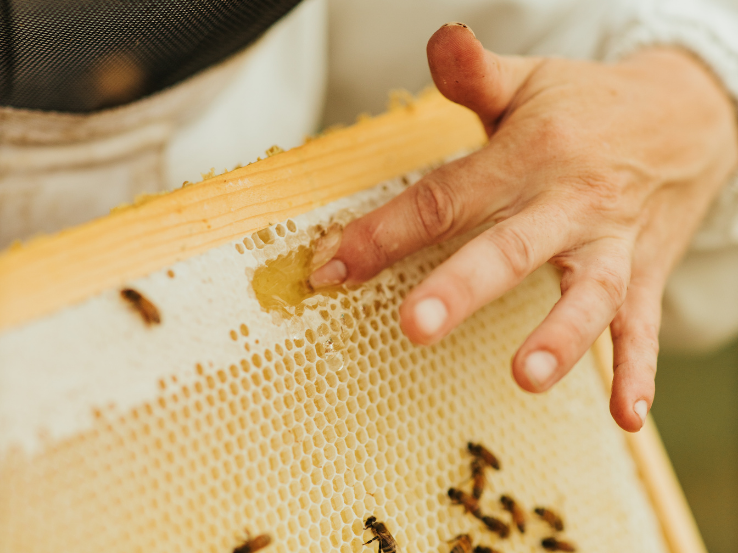
Beekeeping is an essential agricultural activity
"The entire shape of the ecosystem is dependent on the interactions between pollinators and plants that allow plants to set seed and then exist across our landscape," explains Hoover.
She describes honey bees as nano-livestock, an introduced species akin to pigs or cattle; they would not survive in Alberta without the dedicated help of beekeepers. From applying treatments for parasitic mites to wrapping up hives for winter, beekeepers follow detailed management plans paying careful attention to the health of their bees.
Beekeeping is an essential agricultural activity in Canada, with 70 per cent of honey bee colonies in Canada located on the prairies. Farmers in Alberta produce almost a third of all Canadian honey, and the value of pollinating activities is far greater.
Are Canada's honey bees in jeopardy in terms of honey bee colonies?
"Last year, about a third of our honey bee colonies died over winter,” says Hoover. “That's a really high rate for any kind of livestock producer. Imagine if we lost a third of our sheep or a third of our cows every year?”
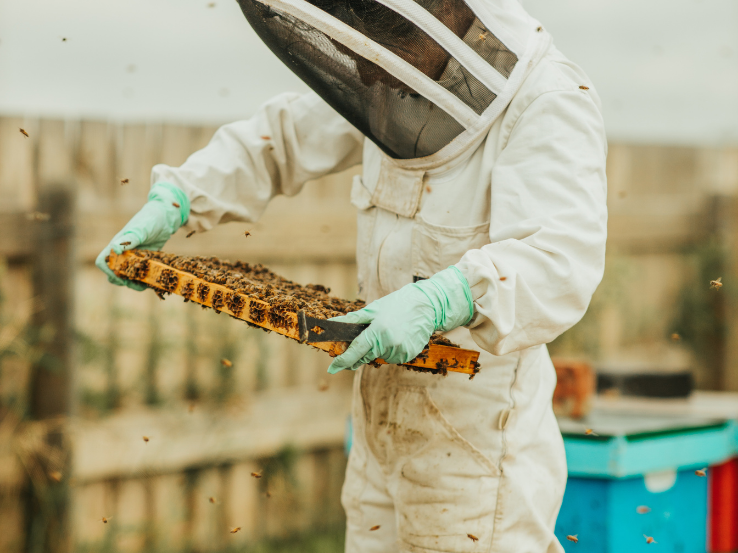
During the pandemic, importing queen bees, worker bees, and foreign human workers into the country to support beekeeping operations became much more complicated and costly to producers. Bees’ natural mating cycles don't always align with our farming season, and Canadian farmers rely on imported mated queens in particular. Add these new challenges to recurring problems such as parasitic mites and weather issues and beekeepers estimate there will be a significant reduction in honey production this year.
Alberta is also home to more than 300 species of native bees, which have established long-standing relationships with the native plants in Alberta's ecosystem. When bees aren't around to pollinate, there is a cascading negative effect on the ecosystem.
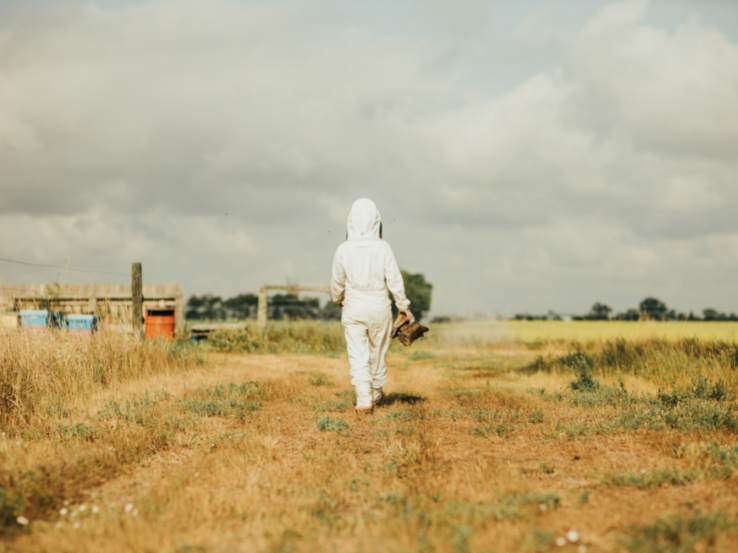
“I don't want to minimise the challenges beekeepers face and how important they are to the sustainability of our honey bee populations, but I would say no. We still have over 700,000 honey bee colonies in Canada, and the reason they're not in jeopardy is due to the actions of beekeepers," says Hoover. “The next time you appreciate a spoonful of delicious Alberta honey, be sure to appreciate the efforts of our local beekeepers.”
Learn more about Dr. Hoover's extraordinary research
- Watch Dr. Hoover's talk at the uLethbridge Agri-Food Summer Speaker Series
- Learn more about uLethbridge Agri-Food Summer Speaker Series
- Faculty Friday | Dr. Shelley Hoover, biological sciences
- Dr. Shelley Hoover: International Day of Women and Girls in Science
- Follow Dr. Hoover on Instagram: @uleth_bees
Study at uLethbridge
Find info about programs, admission, deadlines, fees and funding
